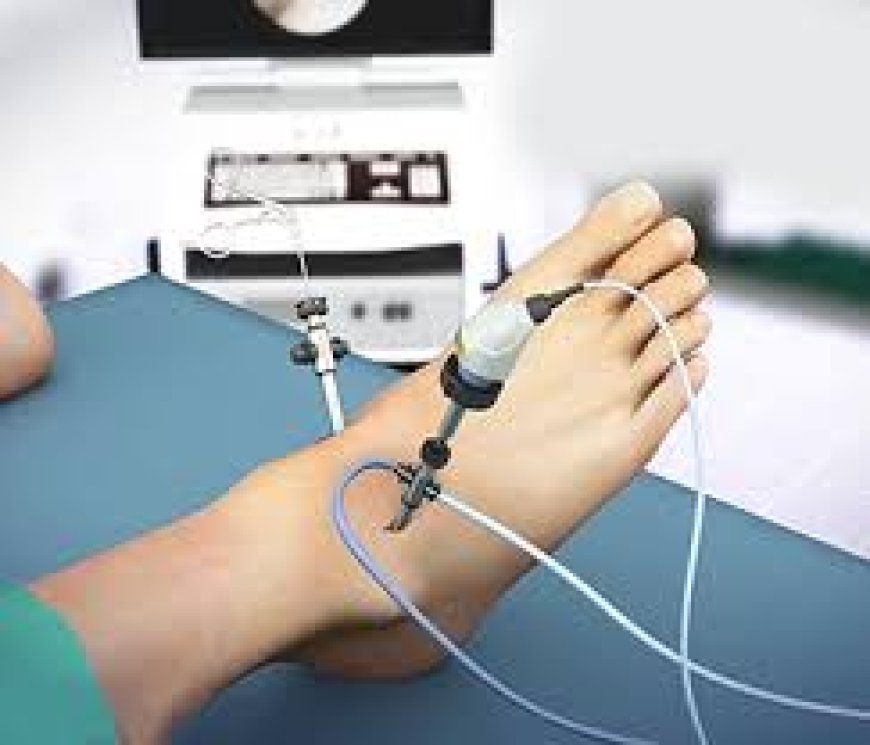3 Hidden Benefits of Learning Minimally Invasive Surgery
Discovered a new model that will revolutionize how entrepreneurs approach productivity & time leverage.

Minimally Invasive Surgery (MIS) has transformed the landscape of modern medicine. While many are aware of its primary advantages such as reduced scarring, shorter recovery times, and decreased postoperative pain—there are additional, less-discussed benefits that can significantly impact both patient care and medical practice. Drawing insights from experts like Dr. TJ Ahn, a renowned podiatrist and educator in the field, let's delve into three hidden benefits of learning MIS.
Enhanced Patient Satisfaction and Outcomes
One of the subtle yet profound benefits of MIS is the enhancement of patient satisfaction. Patients undergoing MIS often experience:
-
Reduced Postoperative Pain: Smaller incisions lead to less tissue trauma, resulting in decreased pain levels post-surgery.
-
Faster Recovery Times: Patients can return to their daily activities more quickly compared to traditional surgery.
-
Lower Risk of Complications: The precision of MIS techniques minimizes the chances of infections and other postoperative complications.
These factors contribute to a more positive patient experience, leading to higher satisfaction rates and better overall outcomes.
Increased Practice Efficiency and Revenue
Adopting MIS techniques can lead to significant improvements in surgical practice efficiency:
-
Shorter Procedure Times: MIS often requires less time in the operating room, allowing for more procedures to be scheduled.
-
Reduced Hospital Stays: Patients can often be discharged on the same day, freeing up hospital resources.
-
Higher Patient Turnover: The efficiency of MIS enables practices to treat more patients, potentially increasing revenue.
By streamlining surgical procedures, practices can operate more effectively, benefiting both patients and healthcare providers.
Professional Growth and Competitive Advantage
Surgeons trained in MIS techniques often find themselves at the forefront of medical innovation:
-
Skill Enhancement: Learning MIS requires mastering advanced surgical skills, contributing to professional development.
-
Market Differentiation: Offering MIS can set a practice apart from competitors, attracting patients seeking the latest surgical options.
-
Opportunities for Teaching and Leadership: Experienced MIS practitioners may have opportunities to teach or lead in their field, furthering their careers.
Embracing MIS not only benefits patients but also propels surgeons toward greater professional achievements.
Frequently Asked Questions
What training is required to perform Minimally Invasive Surgery?
To perform MIS, surgeons must undergo specialized training that includes:
-
Didactic Learning: Understanding the principles and techniques of MIS.
-
Hands-On Workshops: Practicing skills in simulated environments.
-
Proctorship Programs: Gaining experience under the supervision of experienced MIS surgeons.
Institutions like Dr. TJ Ahn's programs offer comprehensive training to equip surgeons with the necessary skills.
How does MIS compare to traditional surgery in terms of patient outcomes?
MIS often results in:
-
Less Postoperative Pain: Due to smaller incisions and less tissue disruption.
-
Faster Recovery: Patients typically resume normal activities sooner.
-
Lower Complication Rates: Reduced risk of infections and other complications.
These outcomes make MIS a favorable option for many surgical procedures.
Are there specific conditions best treated with MIS?
MIS is particularly effective for:
-
Foot and Ankle Disorders: Such as bunions and hammertoes.
-
Spinal Conditions: Including herniated discs and spinal stenosis.
-
Gynecological Issues: Like endometriosis and fibroids.
However, the suitability of MIS depends on individual patient factors and should be assessed by a qualified surgeon.
What support does Dr. TJ Ahn provide for surgeons new to MIS?
Dr. TJ Ahn offers:
-
Comprehensive Training Programs: Covering both theoretical knowledge and practical skills.
-
Mentorship Opportunities: Providing guidance from experienced MIS practitioners.
-
Practice Development Resources: Assisting surgeons in integrating MIS into their practices effectively.
These resources aim to support surgeons at every stage of their MIS journey.
Conclusion
Learning Minimally Invasive Surgery offers benefits that extend beyond the operating room. From enhancing patient satisfaction to boosting practice efficiency and fostering professional growth, MIS represents a significant advancement in surgical care. Surgeons looking to stay ahead in their field should consider the advantages of incorporating MIS into their practice.
For those interested in exploring MIS further, Dr. TJ Ahn's programs provide comprehensive training and support. Embrace the future of surgery and elevate your practice by mastering Minimally Invasive Surgery.























































































